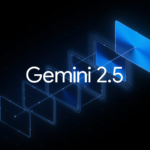At its highly anticipated Cloud Next conference, Google pulled back the curtain on its latest technological marvel in artificial intelligence — Ironwood, the seventh generation of Google’s custom-built TPU (Tensor Processing Unit) chips. Designed specifically for AI inference, Ironwood sets a new benchmark for performance, efficiency, and scalability in cloud-based AI workloads.
This next-gen TPU represents a major leap forward in Google’s silicon strategy, targeting the rapidly evolving demands of generative AI, recommendation systems, and other compute-heavy inferential models. For developers, enterprises, and researchers relying on Google Cloud, Ironwood signals a powerful new tool to accelerate AI applications at unprecedented speed and scale.
Purpose-Built for AI Inference at Scale
Unlike previous TPU generations that focused more on AI training workloads, Ironwood is Google’s first TPU specifically optimized for inference — the phase where trained AI models are deployed to perform real-world tasks, like language translation, content generation, image recognition, and more.
“Ironwood is our most powerful, capable, and energy-efficient TPU yet,” said Amin Vahdat, VP of Google Cloud, in an official blog post shared with TechCrunch. “It’s purpose-built to power thinking, inferential AI models at scale.”
Google plans to launch Ironwood for Google Cloud customers later this year, offering two configurations: a 256-chip cluster for mid-scale workloads and a massive 9,216-chip cluster to handle enterprise-grade deployments and advanced AI models.
Next-Level Performance: The Specs That Matter

When it comes to raw performance, Ironwood doesn’t disappoint. According to internal benchmarks, each TPU chip in the Ironwood line is capable of delivering up to 4,614 teraflops (TFLOPs) of computing power at peak. That’s a significant performance uplift compared to previous TPU generations — and a clear statement in the escalating AI chip arms race.
Here’s what Ironwood brings to the table:
- 🔹 192GB of high-speed RAM per chip
- 🔹 Memory bandwidth approaching 7.4 terabits per second
- 🔹 Optimized architecture to reduce on-chip data movement and latency
- 🔹 Enhanced energy efficiency for sustainable AI operations
One of the standout features is its specialized processing core known as SparseCore, tailored for workloads like advanced ranking algorithms and recommendation systems — for example, suggesting what movie to watch next or which product to buy online. SparseCore enables faster, more accurate processing of sparse data, which is critical for inferential AI.
Built for the Future: Ironwood Meets the AI Hypercomputer
Google isn’t stopping with just launching a chip. Ironwood is slated to integrate into the company’s broader AI infrastructure through the AI Hypercomputer — Google Cloud’s modular, high-performance computing platform designed for AI workloads at scale.
This integration will allow customers to seamlessly deploy Ironwood-powered applications alongside other AI tools in the Google Cloud ecosystem, benefiting from tight integration, flexible scalability, and enhanced performance.
“Ironwood represents a unique breakthrough in the age of inference,” Vahdat added. “With increased computational power, greater memory capacity, networking advancements, and exceptional reliability, it marks a new era of innovation for AI developers.”
A Competitive Landscape: Taking on Nvidia, Amazon, and Microsoft
Google’s announcement of Ironwood comes at a time when the AI hardware landscape is more competitive than ever. While Nvidia continues to dominate with its H100 and upcoming B100 GPUs, major tech rivals are investing heavily in their own in-house accelerators:
- Amazon has introduced Trainium, Inferentia, and Graviton processors, available through AWS.
- Microsoft has developed the Cobalt 100 AI chip, currently used in Azure instances.
With Ironwood, Google is not just keeping pace but staking a bold claim in the future of cloud-based AI infrastructure. Its focus on inference — a growing demand in AI deployments — gives it a strategic edge in supporting the next wave of intelligent applications.
Final Thoughts: Why Ironwood Matters
As AI continues to shape industries from healthcare to finance, the importance of fast, efficient, and scalable inference capabilities cannot be overstated. Google’s Ironwood TPU is more than just another chip — it’s a statement of intent. A declaration that the future of AI is not only about building smarter models, but also about delivering them to users faster, cheaper, and more reliably than ever before.
Whether you’re building a chatbot, a recommendation engine, or a generative art platform — Ironwood is poised to power the AI that powers your world.










